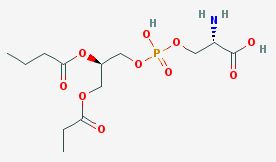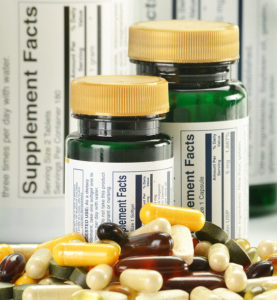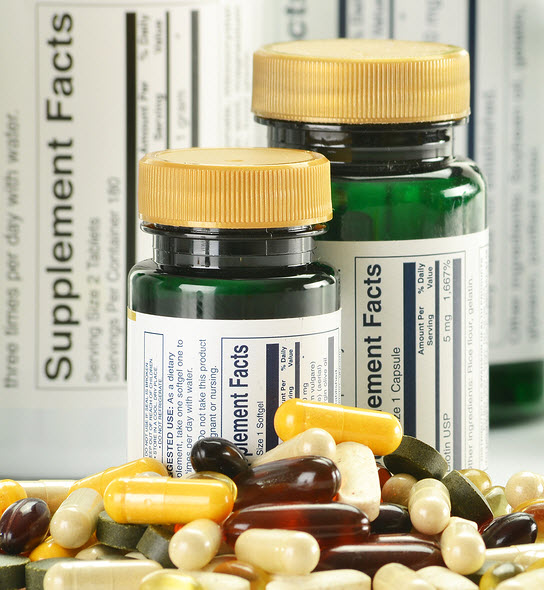Table of Contents
Phosphatidylserine (PS) is a phospholipid component of the membrane encasing every one of your brain cells.
PS helps maintain the fluidity and permeability of brain cells. Allowing for the efficient transfer of proteins, enzymes, nutrients, oxygen and glucose into and out of each cell.
Phosphatidylserine is involved in the formation and sending of signals within neurons. And the chemical signaling that takes place across neural synapses.
PS promotes healthy nerve growth factor (NGF), and supports the neurogenesis needed for long-term potentiation (LTP). Memory formation depends on healthy LTP.
Phosphatidylserine is involved in building mitochondria which are the energy centers of each brain cell.
Phosphatidylserine (PS) is arguably one of the most effective and important nootropics we have available today. PS keeps our brain cells healthy. And has a reputation for improving alertness, attention, cognition, memory, recall and mood.
Phosphatidylserine helps:
- Neuro-optimization: Phosphatidylserine (PS) keeps brain cells fluid and permeable. This neuroplasticity helps neurons form new connections needed for memory formation. PS is integral to cleaning up damaged neurons and maintaining an optimized brain.[i] And PS boosts mental energy by easing the flow of glucose and oxygen needed to power brain cells.
- Neurotransmitters: Phosphatidylserine is an integral part of the flow of crucial neurotransmitters like dopamine and acetylcholine. And phospholipids contain choline which is a precursor to acetylcholine (ACh). So PS will increase ACh levels in your brain. Affecting cognition, memory and mood. And reducing anxiety.
- Neurogenesis: Phosphatidylserine works in concert with the DHA in Omega-3’s and keeping brain cells optimized. Prolonging neuron survival and health. And the combination of Phosphatidylserine and DHA has been shown in several clinical studies to upregulate Brain-Derived Neurotrophic Factor (BDNF).
Overview
Phosphatidylserine (PS) is a phospholipid component of brain cell membranes. The membrane is the outer casing surrounding each cell. PS plays a vital role in cell-to-cell signaling in the brain. And is needed to maintain the fluidity of all cell membranes.

Phosphatidylcholine (PC) is the most abundant phospholipid in the brain. Followed by a slightly lesser amount of Phosphatidylserine (PS).
Phosphatidylcholine (PC) is in the outer layer of brain cell membranes, and Phosphatidylserine (PS) is part of the inner layer. Both are critical to maintaining optimal cognitive health. PS is synthesized from PC in the brain by exchanging the base head group with a serine.
Phosphatidylserine (PS) supports the formation and sending of neural signals within neurons. And across synaptic junctions that link one neuron with another. This cellular communication is how we form memories.
Phosphatidylserine (PS) also helps nerve growth factor (NGF) that ensures healthy neurogenesis. And PS even assists in building mitochondria which are the energy source in every one of your brain cells.
When your brain cell membranes are healthy, they are malleable, fluid and flexible. But by the time we reach our 20’s, phospholipids including Phosphatidylserine (PS) start declining. This casing starts to harden. And attention, concentration, memory, mood and learning begin to suffer.[ii]
The good news is you can prevent this cellular damage from happening. The amount and type of long-chain fatty acids in your diet affects the composition of these cell membranes.
The structure and function of your cells depend on the ideal balance of fats including cholesterol, oleic, palmitic and stearic fatty acids. And essential fatty acids like Omega 3. Without this proper balance, cell membrane function is compromised.
But our typical modern diet does not provide the ideal balance of fatty acids (phospholipids) to maintain brain cell health. It’s why we experience brain fog, memory loss, slow thinking and poor decision making.
You naturally get Phosphatidylserine (PS) from foods like cow brains, pig spleen and chicken hearts. So there must be some merit to the saying, “Eat brains and get smarter”!
Unfortunately, not many of us include organ meat as part of our daily meal plan. So the best way to maintain healthy levels of Phosphatidylserine (PS) in your brain is taking PS as a nootropic supplement.
Phosphatidylserine (PS) was originally made from bovine (cow) brains. But with the mad cow disease scare, PS supplements are now made from extracts of soy or sunflower lecithin.
How does Phosphatidylserine work in the Brain?
Phosphatidylserine (PS) boosts brain health and function in several ways. But two in particular stand out.
- Phosphatidylserine (PS) is needed for memory. PS stimulates the brain chemicals that boost neural signaling for quick, clear thinking. In fact, Phosphatidylserine is one of the most effective memory boosters known.
Phosphatidylserine (PS) has been shown that it can slow, halt and even reverse the progression of age-related cognitive decline. One study with 149 patients meeting the criteria for age-associated memory impairment were given 100 mg of Phosphatidylserine (PS) or a placebo for 12 weeks.
The patients who received Phosphatidylserine (PS) showed improved performance on tests related to learning and the memory tasks of daily life. The study concluded that Phosphatidylserine (PS) was a promising candidate for treating memory loss later in life.[iii]
- Phosphatidylserine (PS) helps repair neurons. Phosphatidylserine (PS) works in concert with DHA (Omega-3) to protect brain cells from damage. And boost neuronal survival.
You brain is made up largely of DHA fat. The kind of fat you get from supplementing with Omega-3’s. And a decrease in DHA content in the brain results in cognitive impairment. Studies show that Alzheimer’s Disease is associated with lower Omega-3 fatty acid intake.
Researchers in Canada looked at samples provided by the Memory and Aging Project. And found a significant difference in plasma fatty acid profiles of those with Alzheimer’s, mild cognitive impairment and those with perfectly healthy brains.
The team found that DHA and Phosphatidylserine (PS) in both disease categories was 12-14% lower than those of healthy brains. They concluded that Alzheimer’s Disease is associated with lower DHA and Phosphatidylserine (PS).[iv]
Trials and clinical studies like these provide plenty of motivation to supplement with Phosphatidylserine (PS) and DHA. It will help you ward off neurodegenerative disease. DHA and Phosphatidylserine (PS) for an optimized brain.
How things go bad
As we get older, our brain chemistry and energy metabolism changes. This can happen at any age once we enter our adult years.
↓ Brain cell membranes lose fluidity
↓ Neurotransmitter signaling declines
↓ Recall, reaction time and mood diminish
↓ Memory declines
All of these changes can happen at any age. And starts as early as our 20’s. Our cell membranes are influenced by the food we eat, what we drink, lifestyle habits, the air we breathe and more.
So Phosphatidylserine (PS) can help for age-related cognitive decline, as well as a student looking to do better in school.
Phosphatidylserine benefits
Phosphatidylserine (PS) makes up about 15% of the total phospholipid pool in your brain. Phosphatidylserine (PS) is located mainly in the internal layer of your brain cell membranes.
Phosphatidylserine (PS) is involved in governing membrane fluidity, and the regulation of all activity going on in that brain cell. Phosphatidylserine (PS) interacts with cellular proteins, modulates the activity of neuroreceptors, enzymes, ion channels, and signaling molecules.
Supplementing with Phosphatidylserine (PS) improves brain function that tends to decline with age. Healthy brain cell membranes support neuroplasticity so neurons can form the connections needed to convert new experiences into memories.
Phosphatidylserine (PS) helps lower cortisol and ACTH levels during intense exercise.[v] Phosphatidylserine (PS) is even effective in relieving stress. And putting you in a better mood during exams.[vi]
Many clinical trials with Phosphatidylserine (PS) have shown improvements in working- and long-term memory, recall, logic and even speech. Attention span increases while using Phosphatidylserine (PS). And motivation, socialization and initiative all increased when using Phosphatidylserine (PS) as a nootropic.
How does Phosphatidylserine feel?
Neurohackers report that using Phosphatidylserine (PS) as a nootropic:
- Boosts energy levels

- Improves alertness
- Less brain fog
- Better memory
- Logical thinking improves
- Concentration is better
- Clarity of thought
- Weight loss
- Easier to remember names, phone numbers, tasks, etc.
- Mood improves
- Anti-anxiety
- Lowers cortisol
- Relieves insomnia
- Vivid dreams
There are reports that Phosphatidylserine (PS) helps with Tourette’s Syndrome.
Phosphatidylserine (PS) a great compliment to ADHD meds. PS helps tame the symptoms of ADHD. And doesn’t interfere with popular stimulants like Ritalin and Adderall. You may even be able to cut back on the ADHD meds once Phosphatidylserine (PS) builds up in your system.
Phosphatidylserine Clinical Research
Phosphatidylserine Reduces Beta Brain Waves
Beta brain waves have the most rapid pattern of all the brain waves produced in your brain. Beta waves are associated with concentration, arousal, alertness and cognition.
But it would be unpleasant to be in a constant state of arousal. This study in Germany gave 16 healthy subjects Phosphatidylserine (PS) for 42 days. The team tested brain wave patterns before supplementation. And again in 42 days.
The main finding in this study was that chronic Phosphatidylserine supplementation significantly decreases Beta brain waves. And the results showed that the Phosphatidylserine (PS) group were connected to a more relaxed state compared to the controls.[vii]
Phosphatidylserine Reduces Stress
Studies have shown that Phosphatidylserine (PS) blunts the release of cortisol in response to exercise stress. And Phosphatidylserine (PS) improves mood. In this study, researchers at the University of Wales Swansea gave young adults 300 mg of Phosphatidylserine (PS) each day for a month.
The study resulted in these young adults feeling less stressed after doing a stressful arithmetic task. And they were in a better mood. The researchers concluded that Phosphatidylserine (PS) supplementation improves mood and reduces stress even in healthy, young people.[viii]
Phosphatidylserine Improves Cognition in Athletes
Phosphatidylserine (PS) is found in the cell membranes of most animals and plants. Phosphatidylserine (PS) has been shown to reduce stress and increase performance in runners, cyclists and golfers.
 This double-blind, placebo-controlled study was conducted to study the effects of Phosphatidylserine (PS) on cognitive function, mood and endocrine response before and after intense exercise.
This double-blind, placebo-controlled study was conducted to study the effects of Phosphatidylserine (PS) on cognitive function, mood and endocrine response before and after intense exercise.
18 lower body, resistance-trained male college athletes took Phosphatidylserine (PS) for 14 days, or a placebo. Following 14 days of supplementation, participants performed an acute bout of lower body resistance training.
Mood and cognitive function were measured before, 5 minutes after and 60 minutes after exercise. And blood samples were drawn prior to, 5, 15, 25, 40 and 60 minutes after exercise. Blood was tested for cortisol and testosterone.
The researchers found that Phosphatidylserine (PS) significantly increased cognitive function prior to exercise. And Phosphatidylserine (PS) prevented both mood and hormones from being negatively affected prior to and following resistance exercise.[ix]
Phosphatidylserine Reduces Symptoms of ADHD
Researchers in Japan conducted a randomized, double-blind, placebo controlled trial with 36 children aged 4 – 14 years. The kids were diagnosed with ADHD but had not received any conventional ADHD treatment prior to the trial.
The children received 200 mg of Phosphatidylserine (PS) or a placebo daily for 2 months. The team recorded the children’s ADHD symptoms, short-term and working memory, and mental performance.
The team found that Phosphatidylserine (PS) significantly improved ADHD symptoms and short-term memory. ADHD symptoms that were reduced included inattention, short-term memory problems, and impulsivity. The placebo group saw no improvement during the trial.[x]
Another study with 200 ADHD children looked at the effects of Phosphatidylserine (PS) combined with Omega 3’s for 30-weeks. The key finding of this trial was a significant reduction in the restlessness/impulsive scale and an improvement in emotions.
The researchers concluded that Phosphatidylserine (PS) with Omega 3 may reduce ADHD symptoms in children with ADHD. And it was especially effective in a subgroup of hyperactive-impulsive, emotionally and behaviorally-dysregulated ADHD children.[xi]
The bottom line is that if you have Adult ADD like I do, or you have children with ADHD or ADD, consider 200 mg of Phosphatidylserine (PS) for a couple of months before going with Adderall or Ritalin. And add in some Omega 3’s for good measure.
Or find a ready-made Nootropic stack like Mind Lab Pro™ that already has 100 mg of Phosphatidylserine (PS) in their formula. No side effects and you just might get rid of the ADHD symptoms that are plaguing you.
Phosphatidylserine Improves Memory
Several studies have shown that using Phosphatidylserine (PS) as a nootropic to boost memory works well both for age-related cognitive decline as well as more serious diseases like Alzheimer’s and dementia.
A double-blind, placebo controlled trial in Tel Aviv worked with 18 healthy elderly volunteers with age-related cognitive decline. The volunteers took 100 mg of Phosphatidylserine (PS) 3-times per day for 12 weeks. They were evaluated at the start of the trial, at 6 weeks of treatment and at the end of the trial.
All but two of the volunteers showed significant improvement in memory from using Phosphatidylserine (PS). Memory and cognition improved in the first 6 weeks of Phosphatidylserine (PS) use. And continued to get better until the end of the 12-week trial.[xii]
Another trial with 51 Alzheimer’s patients using 100 mg of Phosphatidylserine (PS) for 12 weeks showed that PS may be a promising candidate for the early stages of Alzheimer’s Disease.[xiii]
Phosphatidylserine Recommended Dosage
Recommended Phosphatidylserine (PS) dosage is 100 mg 3-times per day.
 If you’re concerned about Genetically Modified Organisms (GMO) like I am, make sure you find Phosphatidylserine (PS) that is non-GMO. Because most Phosphatidylserine (PS) is derived from the lecithin of soybeans.
If you’re concerned about Genetically Modified Organisms (GMO) like I am, make sure you find Phosphatidylserine (PS) that is non-GMO. Because most Phosphatidylserine (PS) is derived from the lecithin of soybeans.
And oddly enough a manufacturer may use both GMO and non-GMO. And not have it marked on the packaging.
I’m aware of at least one supplement maker who offers non-GMO Phosphatidylserine (PS) in their 120-count bottles. But their 60-count bottles are made with GMO soybean lecithin. Do your research.
Even better is find Phosphatidylserine (PS) that is made from non-GMO sunflower lecithin. Especially if you’re allergic or react to soy. Like used in my favorite pre-made nootropic stack: Mind Lab Pro®
Phosphatidylserine Side Effects
Phosphatidylserine (PS) is naturally produced in your body and is considered well tolerated and safe. Phosphatidylserine (PS) is non-toxic.
Some may experience insomnia or stomach upset at higher than recommended doses.
Medications for Alzheimer’s may interact with Phosphatidylserine (PS) because these drugs are often Acetylcholinesterase (AChE) inhibitors. An AChE inhibitor will increase the amount of acetylcholine (ACh) in your brain. And since Phosphatidylserine (PS) increases ACh, you may end up with too much acetylcholine.
Type of Phosphatidylserine to Buy
Phosphatidylserine (PS) is sold in tablet or capsule form. Capsules can run from 100 to 300 mg each.
Plain Phosphatidylserine (PS) was originally sourced from cow brains. But since the mad cow disease scare, most Phosphatidylserine (PS) supplements are now made from soybean lecithin.
Enzymotec makes a unique form of Phosphatidylserine (PS) called Sharp PS® Green. It is made from vegetable sources that are not soy-based, and is non-GMO.
Several supplement makers offer this branded form of Phosphatidylserine (PS) which they license from Enzymotec.
Mind Lab Pro® includes 100 mg of Phosphatidylserine (PS) that is derived from non-GMO sunflower lecithin.
I recommend Mind Lab Pro because it addresses all aspects of anxiety resistance, memory and cognitive enhancement, stabilizes mood, brain repair, and maintenance.
This premium nootropic stack is designed to boost key neurotransmitters, cognitive energy, brain waves, neuroprotection, and regeneration. See my Mind Lab Pro review for a detailed report.
Another good option is Performance Lab® Mind which also contains Phosphatidylserine (PS) (using Sharp PS® Green).
CHEMI Nutra also makes a branded form of Phosphatidylserine (PS) made from soy lecithin called SerinAid®. A few supplement makers license this brand of Phosphatidylserine (PS) for use in their Phosphatidylserine (PS) products.
Nootropics Expert Recommendation
Phosphatidylserine (PS) 100 mg 3-times per day
 I recommend using Phosphatidylserine (PS) as a nootropic supplement.
I recommend using Phosphatidylserine (PS) as a nootropic supplement.
Phosphatidylserine (PS) is arguably one of the most effective and important nootropics we have available today. Phosphatidylserine (PS) keeps our brain cells healthy. And has a reputation for improving alertness, attention, cognition, memory, recall and mood.
Phosphatidylserine (PS) helps lower cortisol which can reduce stress, and help with insomnia. And provide you with a stress-free workout in the gym or on the court.
Phosphatidylserine (PS) clears brain fog, boosts energy levels, helps alertness, and provides clarity to your thought process.
You can get Phosphatidylserine (PS) from food. But the highest concentrations of Phosphatidylserine (PS) are found in organ meats like cow brains and pig spleen.
Phosphatidylserine (PS) levels decline as you age starting in your 20’s. And you are unlikely to get nearly enough through diet. So to get its benefits you should take it as a nootropic supplement.
I suggest starting with a dose of Phosphatidylserine (PS) at 100 mg 3-times per day. Dosing should not exceed 500 mg per day. And there is little benefit to overdoing it with Phosphatidylserine (PS).
You can buy individual Phosphatidylserine (PS) supplements. Or you could try my favorite pre-formulated nootropic stack Mind Lab Pro® which includes Phosphatidylserine (PS) from non-GMO, organic sunflower lecithin.
Mind Lab Pro contains a synergistic blend of 11 brain enhancing nootropics covering all aspects of cognition and brain health. See my full Mind Lab Pro review for more.
Another good option is the Mind formula by Performance Lab® which also contains Phosphatidylserine (using Sharp PS® Green). You can see my full review of Performance Lab® Mind here.








Join The Discussion - 223 comments
Wong
April 3, 2025
Any good brand to recommend for sharp PS
David Tomen
April 4, 2025
Wong, this one: https://geni.us/e8FO3S
David K
March 1, 2025
can you (or should you) take cdp choline and phosphatidylserine together?
Thanks
David Tomen
March 1, 2025
Yes because CDP-Choline is used to produce acetylcholine. And PS is used to keep cell membranes healthy. CDP-Choline also helps make Phosphatidylcholine (PC) needed to keep cell membranes healthy. The only other thing you need to add for cell membranes is 1,000 mg per day of DHA (Omega-3).